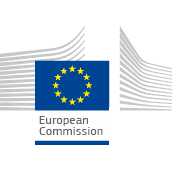
Call for proposals to monitor, prevent and counter hate speech online - REC-RRAC-ONLINE-AG-2018
Deadline: Oct 11, 2018
CALL EXPIRED
CALL EXPIRED
Humanitarian Aid
Victims of Torture
Justice
Aid to Refugees
Rights, Equality and Citizenship Programme
Digital Society
Web
Violence
Human Rights
Priorities and activities to be co-financed
1. Priorities
The Commission is committed to curb the trends of online hate speech in Europe. For that purpose, on 31st May 2016, the Commission agreed on a Code of Conduct on countering illegal hate speech online (http://europa.eu/rapid/press-release_IP-16-1937_en.htm). The call is thus aimed at supporting projects in the field of countering hate speech online, including projects aimed at contributing to better understand, monitor, prevent and counter hate speech online. The call for proposals to monitor, prevent and counter hate speech online will support the following priorities:
- Projects aimed at development, studies and analyses of the sociological landscape and trends on hate speech online;
- Projects on developing online alternative and counter-narratives and promoting the development of critical thinking by Internet users;
- Projects aimed at countering illegal hate speech online on social platforms/Internet companies (As defined under national laws transposing the Council Framework Decision 2008/913/JHA, on combating certain forms and expressions of racism and xenophobia by means of criminal law) and enhancing transparency on how manifestations of hate speech are addressed in the online world.
Proposals building on the activities relating to the implementation of the Code of Conduct on countering hate speech online are of particular interest.
Projects aimed at research and analysis of the sociological landscape relating to the origin and spread of hate speech on social media platforms are expected to build on prior studies and focus on analysis (including through the quantitative analysis of publicly available datasets) of current or new trends of forms of intolerance online and its path of dissemination, such as extremist ideas leading to violence or hatred against minorities.
Projects aimed at development of online alternative and counter-narratives and its dissemination are expected to build on existing best practices and target the specificities of particular forms of intolerance. Projects aimed at developing automatic technologies/responses as means of counter-narratives to racist and xenophobic speech are of particular interest. While proposals do not need to be transnational, the added value of projects involving organisations from more than one participating country is of particular interest.
Projects aiming at tackling online hate speech against journalists, collecting data related to online abuse against media actors and analysing its effects on the democratic debate (as a follow-up of the 2016 Annual Colloquium on Fundamental Rights) are also one of the priorities of the call.
Projects tackling intersectionality and multiple grounds of hatred including misogyny online and hate speech based on gender-related grounds will be regarded as having an added value, as a follow-up to the 2017 Annual Colloquium on Fundamental Rights on "Women's rights in turbulent times" (http://ec.europa.eu/newsroom/just/item-detail.cfm?item_id=115277).
While projects may focus only on one of the priorities of the call, projects combining different priorities will be regarded as having an added value. Moreover, while projects can be national and only cover one Member State, projects covering several countries or which may, in the future, be transferable to other countries will be considered to have an added value.
2. Description of the activities
In relation to the above mentioned priorities, the call will fund projects focused on one or more of the following activities:
- development of technology and innovative web tools preventing and countering illegal hate speech online and supporting data collection. This will include development of online repositories of court jurisprudence and/or concrete cases of manifestations of illegal hate speech online notified to online platforms.
- studies analysing the spread of racists and xenophobic hate speech in different Member States, including the source and structures of groups generating and spreading such content, the volume and the frequency of content upload, the networks and networking activities, platform choices, as well as its reach-out to mainstream society and the appeal of racists and xenophobic material that incites to violence.
- development, dissemination and online awareness raising activities, in particular: development of online narratives promoting EU values, tolerance and respect to EU fundamental rights and fact checking activities enhancing critical thinking and awareness about accuracy of information (These activities should be targeted to hate speech online and complementary to the 2017 Commission Directorate General Communications Networks, Content and Technology’s call for proposals “Call for Proposals for a pilot project on Media Literacy for All”).
- mutual learning, exchange of good practices, including identifying best practices which may be transferable to other participating countries or organisations.
- capacity building and training activities. This includes activities aimed at training stakeholders on EU and national legal framework criminalising hate speech online.
3. Expected results
- Curbing increasing trends of illegal hate speech on the Internet and contributing to better understanding how social media is used to recruit followers to the hate speech narrative and ideas;
- Improving data recording and establishment of trends, including on the chilling effects of illegal hate speech online, including when addressed to key democracy players, such as journalists;
- Strengthening cooperation between national authorities, civil society organisations and Internet companies, in the area of preventing and countering hate speech online;
- Empowering civil society organisations and grass-root movements in their activities countering hate speech online and in the development of effective counter-narratives;
- Increasing awareness and media literacy of the general public on racist and xenophobic online hate speech and boosting public perception of the issue.
Public link: Only for registered users
 EC - Citizens, Equality, Rights and Values Programme (CERV)
EC - Citizens, Equality, Rights and Values Programme (CERV)
Please Log In to See This Section